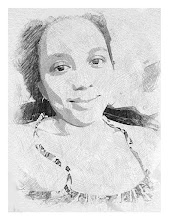After you have washed your face with a chemical free soap, use an applicator to dip into Scotty's face cream or you favorite face cream. Place the cream on your face and spread it all around. Massage the cream into your face gently so the skin absorbs the oils in this cream.
These oils will seal the pores and hold the natural moisture of the skin and enhance the curing effects of the cream
You can use the cream 2-3 times a day. It is best to use it after you have cleaned your face in the morning and right before you go to bed. You can also use it during noontime.
You can use Scotty's' cream under your makeup or over your makeup. It will work either way. However, it will work better on a clean face.
You will notice that when you apply the cream it will tingle in areas without sores and may sting in areas of open sores. This will pass and as it does it should reduce the itchiness of any sores.
Scotty's cream has allantoin, which will help to clear acne sores. The oils, vitamin A and E, and minerals in Scotty's will help to feed, rebuild, and rejuvenate your skin. The minerals also help to neutralize the toxic acids that have contaminated and inflamed pores on your face.
During cleansing and fasting, more acid waste may come out of your pores. This is why Scotty's cream will help you to reduce the inflammation and spread your acne.
Tree Tea OilTo make Scotty's cream or your own cream even more powerful, you can add 5-10 drops of pure tree tea oil to a two-ounce container. You can experiment with the amount to add. You may want to add more drops to provide more tea tree oil for your face. But, do not use more than 15 drops.
Tree tea oil has been found to be effective in various skin disorders. It acts as an antiseptic, antifungal, and antibacterial. This oil helps to bring oxygen to the skin cell, which kills bacteria and fungus and helps to repair damaged skin caused by acne.
Borage OilThere is one more thing that you can add to Scotty's face cream or your favorite acne cream that will boost its acne clearing power. This is borage oil. Borage oil contains EPA and DHA, which helps to control excessive hormones that cause the over production of sebum.
It is the adrenal glands that produce streams of androgens during puberty. These large quantities of androgens help to activate bone growth and assist in bringing forth sexual maturity.
A side effect of these androgens is the release of excess oil from the oil glands near the hair follicle. This excess gives rise to
- black heads
- white heads
- pimples
- cysts
So here's what you can do to make your face cream even more effective,
Mix one or two capsules of Borage oil into your cream
Do this by cutting the tip off of the Borage oil softgel and squeeze the oil into the cream
There is a new form of EPA and DHA that is available in a product called Neptune Krill Oil (NKO)
Neptune Krill Oil (NKO)NKO is the new EPA and DHA product, which maybe better to use than Borage Oil. NKO has the omega-3, EPA and DHA in the phospholipid form, which is easier for your cells to absorb compared with Borage oil. Borage oil contains the omega-3, EPA, and DHA in triglyceride form, which is more difficult for cells to absorb.
One other good property of NKO is that is does not have to be refrigerated like Borage. It can be kept in a cool place in your cabinets. However, it does cost more than Borage oil.
Word of Caution: As with all creams and oils, if you get any rash or skin reactions when using them, discontinue their use.
Use a good face cream to help clear your acne. You can boost the power of this cream by adding tree tea oil and borage or NKO oil.
